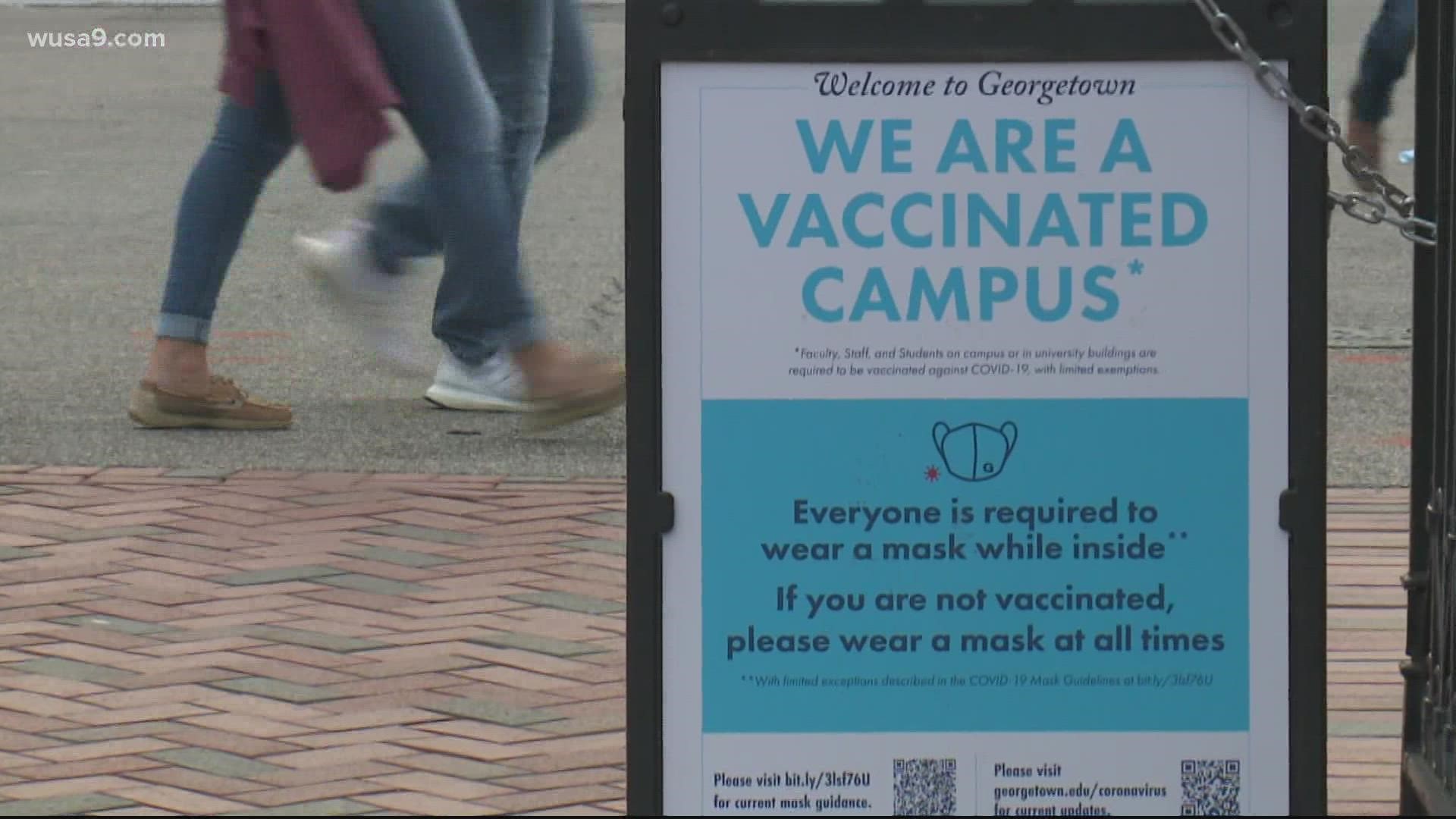WASHINGTON — It's not just high profile positives. COVID-19 cases have ticked up in D.C.
And masks mandates are back on the Georgetown campus and at Johns Hopkins.
So, are these signs of another surge?
"In settings like college campuses, it doesn't make sense with these highly vaccinated populations that are low risk for severe disease, to revert back to blunt tools like masks," said Dr. Amesh Adalja, a Senior Scholar for Health Security at the Johns Hopkins University.
Adalja said don't be alarmed by university policies. They've been the most risk averse throughout the pandemic.
And don't focus just on COVID-19 case counts.
First, they're nowhere near the omicron peak.
But more importantly, public health experts say, fewer people with COVID-19 are ending up in the hospital.
"Although we're seeing more cases on a weekly basis, those individuals are not experiencing severe illness right now in our community," said D.C.'s director of the Department of Health LaQuandra Nesbitt MD, MPH.
"Very few of those new cases are requiring hospitalizations for COVID-19," Nesbitt said in a video call briefing Thursday.
The bigger picture, said Adalja, is that COVID-19 is here to stay - possibly for decades.
"Cases were never going to just always keep going down. They were bound to come back up at some point, especially with the advent of a more contagious variant like BA.2. This is something that we expected to happen," he said.
"But, so long as those infections are mild, so long as they're not overwhelming hospitals, I think we're in a good place because that's always been the goal."
The D.C. health director estimates about 60% of cases right now are the new BA-2 variant of omicron. What health officials don't yet know for sure is if BA.2 leaves people who recover from it with any extra immunity like past variants have.

